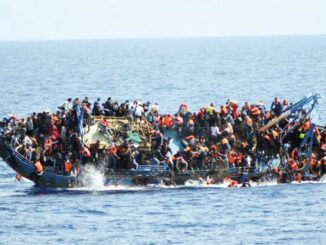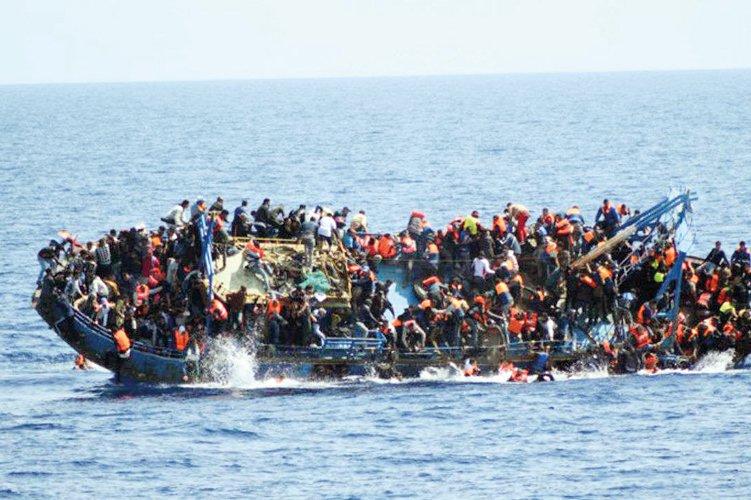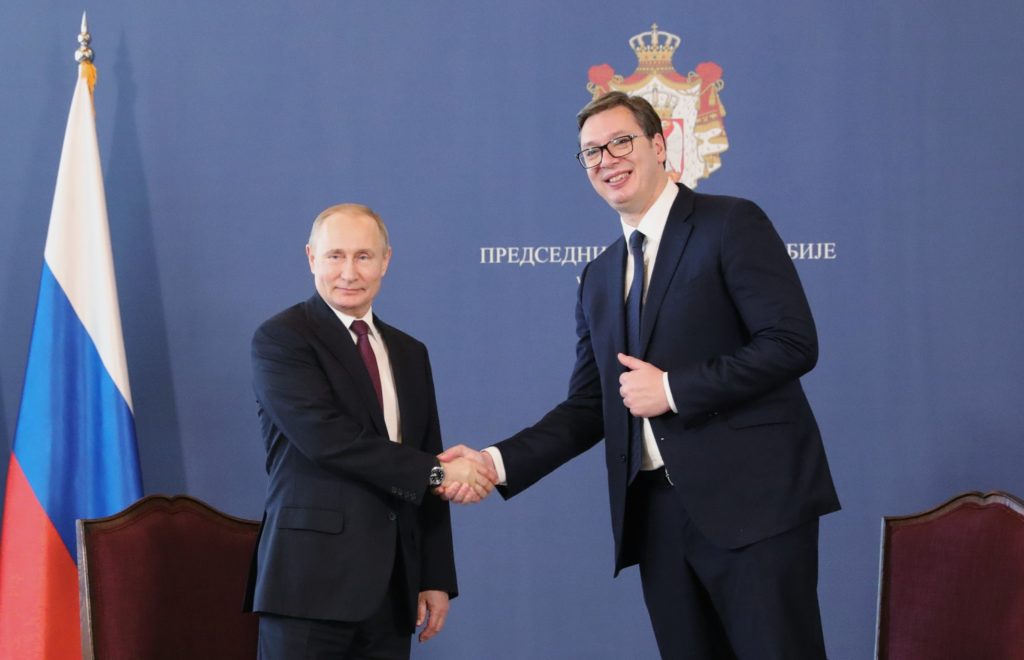
Only a handful of European countries have refused to impose sanctions on the Russian Federation after the United States called for them once Moscow’s “special military operation” in Ukraine began on February 24. Serbia is one such outlier. As a result, the West is pressuring the Balkan nation to change its foreign-policy vector and pick a side in the Russo-Ukrainian conflict.
Ever since the war in Ukraine broke out, Serbia has been trying to preserve its neutral position. Belgrade condemned the Russian invasion, but did not join in on anti-Russia sanctions. That led Moscow to keep Serbia off its list of “unfriendly countries.” That means the Balkan nation—unlike European Union members—can continue purchasing Russian natural gas and oil in U.S. dollars, rather than opening ruble accounts at Gazprombank, a privately owned Russian bank. The problem, however, is the EU could indirectly punish Serbia for not imposing sanctions.
According to reports, transport of crude oil from Croatia for Serbian oil corporation Naftna Industrija Srbije (NIS) will cease May 15 due to the EU’s sanctions against Russian companies. Russia’s Gazprom Neft owns 56.15 percent of shares, while the Serbian state owns 29.87 percent. The fourth package of EU sanctions prohibits European companies from cooperating with a number of Russian companies, including Gazprom Neft and its subsidiaries, in which Russia has more than 50 percent ownership.
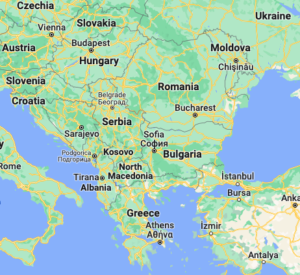
Getting Around Sanctions
What are Serbia’s options? According to Jelica Putnikovic, editor in chief of the Energija Balkana web portal, the alternative to oil supplies from Croatia is transporting crude oil by rail from the Adriatic ports of Durres in Albania and Bar in Montenegro, or by barge from the Greek port of Thessaloniki and the Black Sea port of Romania’s Constanța.
“It is, however, a longer and more expensive transport. The good thing is that Romania and Bulgaria still have not announced that they plan to impose similar sanctions on NIS, which opens the possibility for various oil deliveries to Serbia,” Putnikovic stressed in an interview with a Serbian publication. Her analyses show Serbia produces about 23 percent of its oil needs, while 45 percent of imports come from Iraq, 10 percent from Kazakhstan, 1 percent from Norway and about 16 percent from Russia. Russian gas is relatively cheap for Serbia. It costs $270 per 1,000 cubic meters, while gas prices broke all records at the end of February in Europe and reached $3,900 per cubic meters.
“For us, oil and gas supplies are the most important issues,” Vladimir Djukanovic, a Serbian lawmaker and the top official of the ruling Serbian Progressive Party (SNS) said in an interview with Toward Freedom. The SNS won the majority of parliamentary seats in elections held Sunday, and the party’s leader, Aleksandar Vucic has been re-elected for a second presidential term.
Djukanovic claims Serbia—despite strong pressure from the EU—does not intend to join anti-Russia sanctions.
“If the EU decides to impose energy sanctions on Russia, then we can think about joining sanctions,” Djukanovic added.
Despite sanctions, the EU continues to import Russian oil and gas, although it has radically cut economic ties with Moscow. Presently, the only European air corridor left open to Russia is via Serbia, which is now acting as a gateway. However, Air Serbia—the country’s national airline—has been facing anonymous bomb threats on an almost daily basis. “The author has expressed their dissatisfaction with Serbia’s diplomatic relations with Russia,” reported one news agency on an alleged threat.
“Serbia is politically very important to the West. The EU is not pressuring other European countries—namely Moldova, Georgia and Turkey—to impose sanctions on Russia, because those nations already pursue unfriendly and hostile policies toward Russia,” Djukanovic said. “We have good relations with Moscow, and they aim to portray us as an enemy of Russia.” He added Belgrade must preserve the military neutrality it declared in 2007 in response to the 1999 NATO bombing of Yugoslavia.
In spite of that, the Serbian Army cooperates with the United States’ Ohio National Guard. Moreover, according to Gabriel Escobar, the U.S. State Department’s deputy assistant secretary overseeing U.S. policy toward the countries of the so-called “Western Balkans,” Serbian Armed Forces have conducted far more military exercises with NATO members than with Russia.
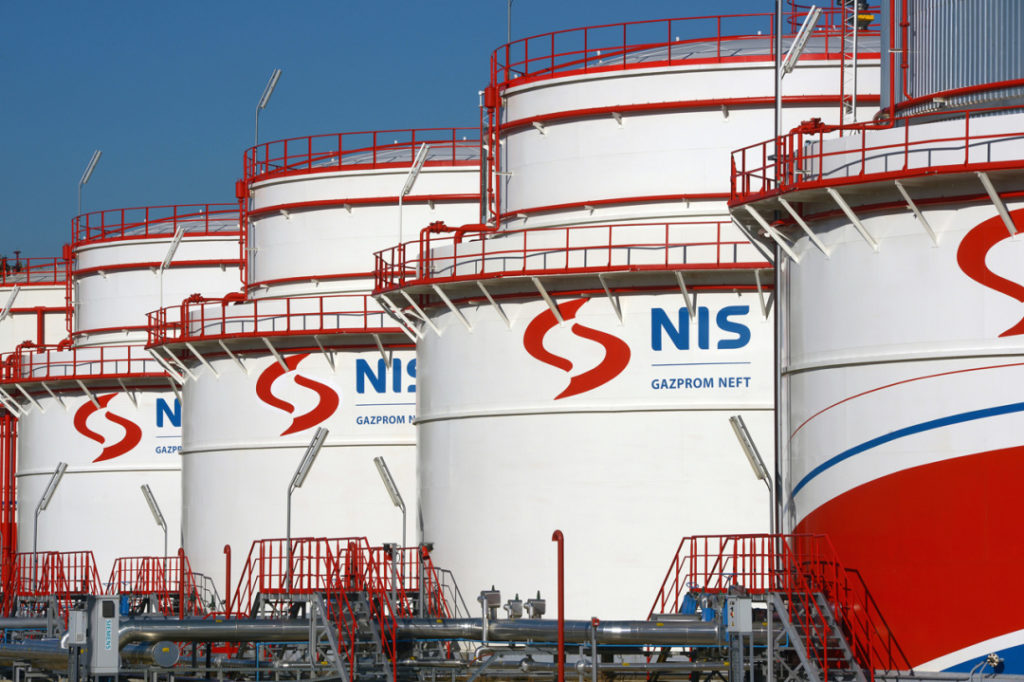
Serbia’s Uncomfortable Position
But can Serbia really preserve its military neutrality? According to Serbian journalist and analyst Zeljko Pantelic, if Belgrade continues to insist on its “non-aligned” status, it risks cooling down relations with the EU.
“Brussels expects Serbia to harmonize its foreign policy with that of the EU,” Pantelic explained. “If Belgrade, however, attempts to destabilize the region at the expense of Russia, and agrees to be used as the Kremlin’s ‘useful idiot’, the consequences for Serbia will be serious.”
Serbian Parliament Speaker Ivica Dacic, on the other hand, insists imposing sanctions on Russia would be tantamount to “political suicide.”
“If we are ready to give up Kosovo, then we can impose sanctions on Russia,” Dacic said in an interview. “But if we are not ready, then we cannot.”
Indeed, Serbia relies on Russia’s veto power in the United Nations Security Council, as the only way to prevent the self-proclaimed Republic of Kosovo—which is the subject of a long-running political and territorial dispute between the Serbian government and ethnic Albanian Kosovo leaders based in the city of Pristina—from becoming a UN member state. Pantelic, however, believes Belgrade’s justification for not imposing sanctions on Russia because of Kosovo is ridiculous. “Only people acting in bad faith, or those who are total illiterates in geopolitics, can believe in it.”
For Serbia, energy cooperation with Russia plays a very important role—possibly even more important than the Kosovo issue—given the country, according to Vucic’s recent statement, depends 100 percent on Russian gas. Still, in Pantelic’s opinion, Serbia will have to carry out “de-russification” of the Kremlin-owned companies operating in the Balkan nation.
“Otherwise, Belgrade will de facto impose sanctions on itself, because Russian-owned companies in Serbia will not be allowed to do business with the EU,” Pantelic concluded.
One thing is for sure: If Belgrade joins anti-Russia sanctions, or decides to nationalize NIS, relatively cheap Russian gas will become a thing of the past.
Nikola Mikovic is a Serbia-based contributor to CGTN, Global Comment, Byline Times, Informed Comment, and World Geostrategic Insights, among other publications. He is a geopolitical analyst for KJ Reports and Enquire.


